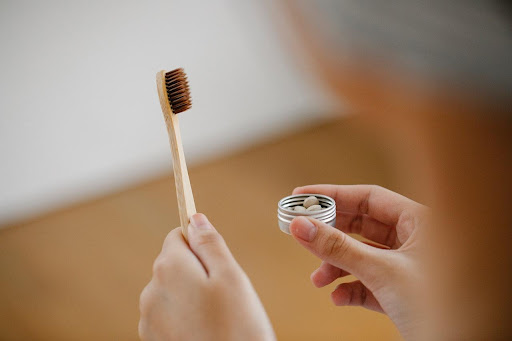A lot of people want to have a perfect smile, but achieving that requires a good oral hygiene routine. A good oral hygiene routine can go a long way in keeping your teeth and gums healthy, which is why it’s essential to start developing and following one now.
In this article, we’ll dive into the details of good oral hygiene and some tips that you can follow to maintain great dental health.
Brush your teeth twice a day
Brushing your teeth is a fundamental part of good oral hygiene. Brushing removes plaque and food particles from your teeth and gums, keeping your mouth clean and healthy. You should brush your teeth at least twice a day, once in the morning and once in the evening, for two minutes each time.
When brushing, use circular motions to cover each tooth’s surface, including the front, back, and top. And don’t forget to brush your tongue too! This helps to eliminate bacteria that cause bad breath.
Use fluoride toothpaste
Fluoride toothpaste is one of the most effective ways to protect your teeth from cavities and decay. Fluoride is a mineral that helps strengthen your tooth enamel, making it more resistant to the acid and bacteria that cause tooth decay.
Make sure you choose a toothpaste that has fluoride in it to get the best results. And if you are not sure, ask your dentist for advice on which toothpaste is best for you.
Floss at least once a day
Flossing is an essential part of good oral hygiene that you should not overlook. Flossing removes food particles and plaque that get stuck between your teeth and gums. Plaque buildup can lead to tooth decay and gum disease, so it’s vital to floss at least once a day.
It’s best to floss before brushing, as it can help loosen any stubborn food particles that have stuck between your teeth.
Rinse with mouthwash after brushing and flossing
Mouthwash is another useful tool to help freshen your breath and maintain good oral hygiene. Mouthwash can help kill harmful bacteria in your mouth that cause bad breath and gum disease.
Rinse your mouth with mouthwash after brushing and flossing to get the best results. And avoid mouthwash with alcohol, as it can dry your mouth and cause other oral problems.
Avoid sugary or acidic drinks and food that may damage enamel
Foods high in sugar and acid can be harmful to your teeth and gums and require extensive dentistry procedures. Eating too many sweets or drinking acidic beverages can cause enamel erosion, which can lead to tooth sensitivity, cavities, and even tooth loss.
Instead, choose healthier options like fruits and vegetables that are low in sugar and high in fiber. And if you do indulge in sweets or acidic beverages, make sure to brush your teeth afterward.
Visit the dentist every six months
Regular visits to the dentist are essential to maintaining good oral health. Dentists can spot early signs of decay or gum disease and treat them before they worsen.
They also will give you a professional cleaning that can remove stubborn plaque and tartar that regular brushing and flossing may not eliminate. Visiting the dentist every six months will ensure that any oral health issues get addressed promptly.










